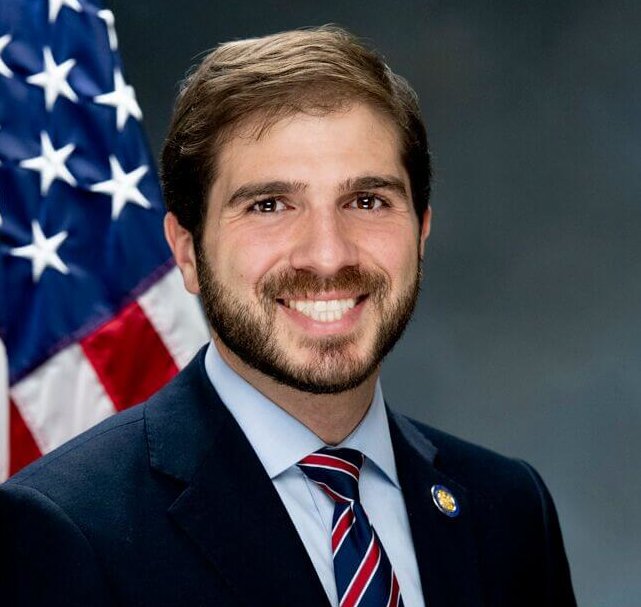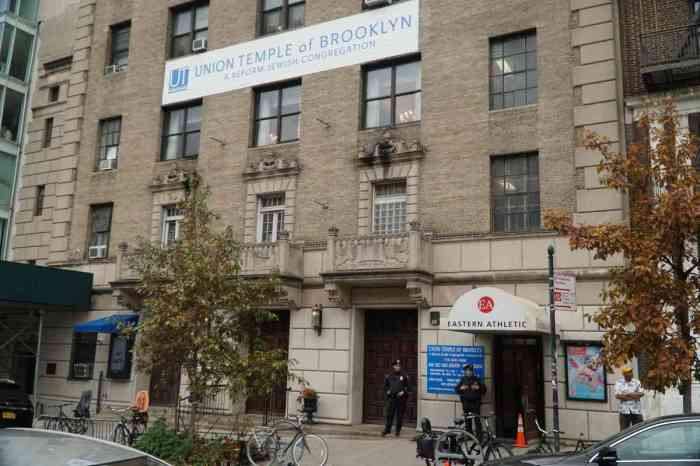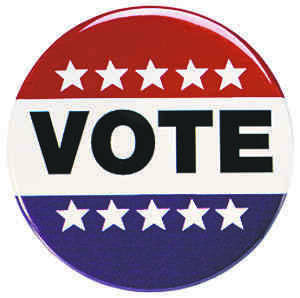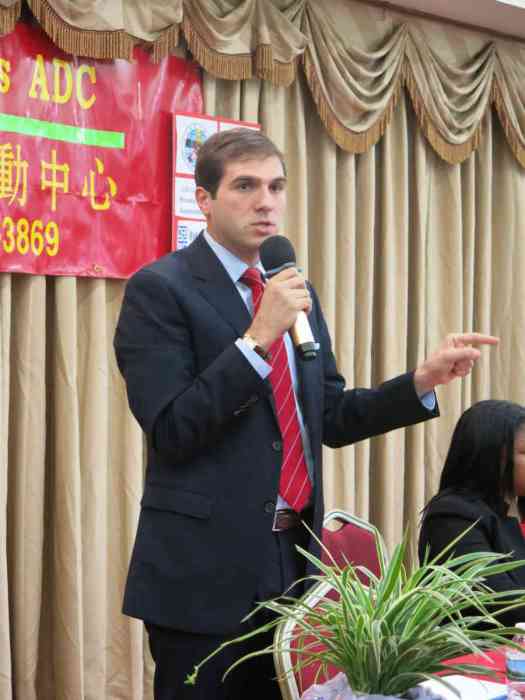Andrew Gounardes is a New York State Senator currently serving the neighborhoods of Bay Ridge, Dyker Heights, Bensonhurst, Bath Beach, Gravesend, Gerritsen Beach, Manhattan Beach, and Marine Park.
To celebrate the relaunch of the Bay Ridge Courier, we’re “checkin’ in” with each of the area’s representatives to discuss a topic of their choosing. This week, we caught up with Gounardes about the ongoing plights of 9/11 survivors — and how the novel coronavirus has underscored the need to support the city’s first responders.
Brooklyn Paper: What influenced your work on the issue of supporting 9/11 first responders?
Andrew Gounardes: One of the big things that I’ve worked on over the last two years has been really picking up the mantle and doing a lot of work to help support 9/11 first responders. Obviously it’s an issue that’s very near and dear to the people who live in this community, so in my tenure as Chairman of the [Senate’s] Civil Service Committee, I tried to make progress on and fix a lot of ongoing issues for which there had been no resolution for years. It’s a body of work that I didn’t necessarily expect to dive into — I mean, you don’t campaign on the theme of helping first responders through a tragedy that took place 20 years ago — but it’s been a real significant part of our work at my office and I’m really proud of it. More than 10,000 first responders or other people who have been affected by the attack on the Twin Towers have been diagnosed with cancer since that day, and so many have died, so we have just continued to see that this crisis has not gone away.
I also have a lot of experience with the issue. At the Borough President’s office, I was a trustee with the pension system, so I sat on that subcommittee that reviewed 9/11 disability pension requests from people who were in rescue, recovery and cleanup and were now disabled because of their service. I spent two-and-a-half years on that subcommittee, so this is an area I know pretty well, and one that I know means so much to so many people.
BP: Can you tell us about some of the 9/11-related legislation you’ve spearheaded?
AG: Last year, I helped pass three bills that collectively tackle the issues these [survivors and first responders] are facing. The first one granted unlimited sick leave to any 9/11 first responder in the city — something people outside the city had for a while but people here did not. There are still so many people who were involved in the cleanup, and the aftermath, and now have some form of cancer or lung disease. Those people need time for recuperation and recovery. We wanted to make sure that they were not negatively impacted [at work] because of their 9/11 service. That bill was incredibly instrumental.
The second bill that we did was one primarily for city firefighters that would allow a five-year look-back once a member retires from service to claim disability for 9/11 related illness. We know that many cancers may take years to manifest themselves, so that bill gives New York City firefighters diagnosed with cancer within five years of their retirement the presumption that the cancer was incurred during 9/11 rescue, recovery and cleanup. That way, they can access Accidental Disability Retirement pensions, a presumption New York State firefighters already had. So many firefighters who entered the job in 2000 and 2001 are now starting to retire, and at the same time, unfortunately, some are starting to get sick. So, we want to make sure that they have protection and that they are able to get the benefits they are otherwise entitled to.
The third bill addresses delays in World Trade Center-related disability claims by increasing the number of medical boards and physicians employed on [New York City Employees’ Retirement System’s] medical board. We wanted to make sure that, given all we know about the types of illnesses and how they manifest, that we have the required expertise on the medical board to help guide these first responders through the process. This was born out of direct experience, where someone said, ‘Look, I’m sick and my doctor says I have this,’ but the medical board doctor doesn’t connect the dots the same way their primary doctor does. It’s about making sure we have the best doctors examining these people.
BP: You recently passed another piece of legislation pertaining to the 9/11 Workers Protection Task Force. Why is that bill so important right now?
AG: This year one of our big focus areas was the task force. It was started in 2005 and the point of the task force was to convene regularly with experts and workers who were affected to talk about ongoing issues like diagnoses, administrative work, etc. To my understanding, and what we heard from people who were appointed to the task force was that, over time, the utility and efficacy of the task force had kind of wained. We wanted to use this as an opportunity to reinvigorate and rehabilitate it.
It’s all about getting the right people to talk about these issues, still, because in New York City, we’re playing catch up when it comes to them. I thought, let’s create an opportunity for these issues to be discussed before they’re coming up, and act proactively rather than reactively. The bill refreshes appointments, expands the task force’s areas of study and requires that the group meet twice a year — which I think is incredibly important, even just to say, look there are no issues right now. It also mandates that the task force deliver reports on its findings to the governor, the Senate and the Assembly by June 1st of each year — and we reauthorized that task force for the next five years. It’s a small bill that I think will have a big impact on the 9/11 community.
BP: In a recent interview with Brooklyn Paper, an advocate compared the COVID-19 pandemic to “salt in the wounds” for those suffering from 9/11-related illnesses. Due to their underlying conditions, the community is particularly susceptible to the novel coronavirus. With that in mind, what else do you think should be done for 9/11 first responders and survivors?
This is something that we were talking about a little bit early on, the correlation between the two. I think this is obviously an area that requires more money because, anecdotally, we’re hearing how [COVID-19 has] magnified and exasperated their existing health issues. My first inclination would be to look into death benefits [for those first responders who have since succumbed to coronavirus-related illness]. Unfortunately, at the onset and even still at this stage, we’ve realized there were just so many unknowns about how COVID would affect people in the long term.
We did [at the height of the pandemic] make sure we passed a line-of-duty benefits bill to guarantee that any public worker would be presumed to have contracted COVID because of their work. I’m very proud of that bill, and we molded that off of the 9/11 benefits bill that took four years to do. This one took us six weeks because we were really focused, we got everyone around the table and we said, this is what we have to do. [We said,] ‘people are dying, families are being left behind right now — let’s figure this out.’
We do hope to come back and revisit that but with disability. That’s certainly an area I’ve focused on and I plan to continue to focus on.























